Peace Can be Achieved by Learning from Our History!
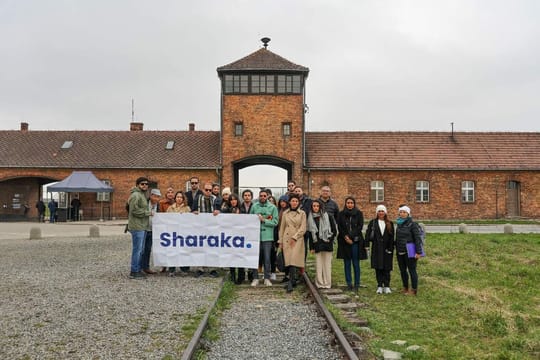
By Fatima Zahra Laaribi,
HAF’s Lead Empowerment Trainer
April 2023 was a memorable month in my life, where I made the courageous decision to join a delegation of Arab participants brought together by Sharaka. Sharaka is an NGO that seeks to grow the impact of the Abraham Accords and build more positive, stronger relations between Israel and other neighboring Arab countries.

The visit to Poland was an educational journey. Alongside Sharaka, 22 Arab participants from Morocco, Bahrain, Syria, Lebanon, Algeria, and Israel took part in the March of the Living, an important program that promotes tolerance through Holocaust education. 10,000 people from all over the world attended, with North African, Middle Eastern, Arab European, Muslim, non-Muslim, religious, and non-religious people calling for unity to spread tolerance, love, and peace for the future. We were led by our tour guide Pauline, who was full of positive energy and devotion, and was very informative on every building and piece of history throughout the visit.
Additionally, Dr. Nir, shared an academic and theoretical framework, which helped us observe the material evidence of the Holocaust camps and consider such a complex and dark moment in history. We were educated about the Holocaust through a series of day and night lectures and conversations shedding light on the Muslim efforts to save Jewish people during this time. We learned about the history of the Polish Jews before World War II, visiting synagogues and Jewish community centers in Krakow.
These visits were significant, as Jews, Christians, and Muslims spent time in places of worship together, spreading the message of brotherhood and coexistence during the Holy month of Ramadan. This unity reflects that all faiths are called to embrace peace and tolerance, not hatred, Antisemitism, or other forms of extremism.

To be present in Kazimierz, Auschwitz, and Birkneau was an unforgettable experience full of mixed emotions. Personally, it was a deep, difficult, and challenging experience, but at the same time was deeply enriching to all participants.
Such visits make you continuously think and reflect on this dark period in the history of humanity. It encourages you to contemplate the things observed with your own eyes and compare them to what you’ve heard or been told in the past. The Holocaust is one of the most painful moments in history, however, our visit brought visibility to the unity of different cultures, religions, and backgrounds in support of the Jewish people.
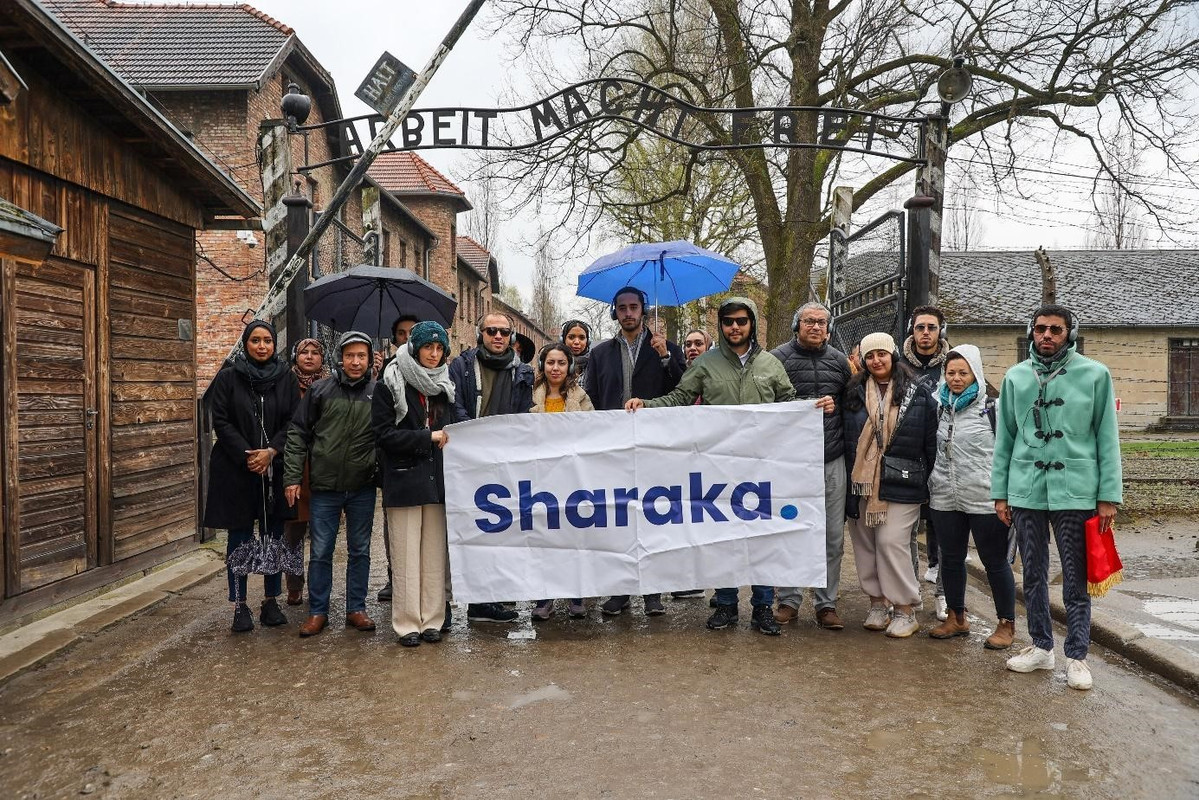
Peace is firmly rooted in our religion, and Islam calls for the acceptance of others. The Prophet, peace be upon him, said, “None of you truly believes until he loves his brother, that which he loves for himself.” One participant, Ahmad Taha, is an Israeli-Arab and a beautiful example of coexistence. Taha explained that during Laylat al-Qadr, one’s prayer is heard more clearly, and the great symbolism of being chosen to pray at this place and time for peace and unity for all humanity.
At this moment, I committed to having peace supplications in my five daily prayers. Abu Sa‘īd al-Khudri (may Allah be pleased with him) reported: “I heard the Messenger of Allah (may Allah’s peace and blessings be upon him) say, ‘Whoever of you sees an evil, let him change it with his hand; and if he is not able to do so, then [let him change it] with his tongue; and if he is not able to do so, then with his heart — and that is the weakest level of faith.’
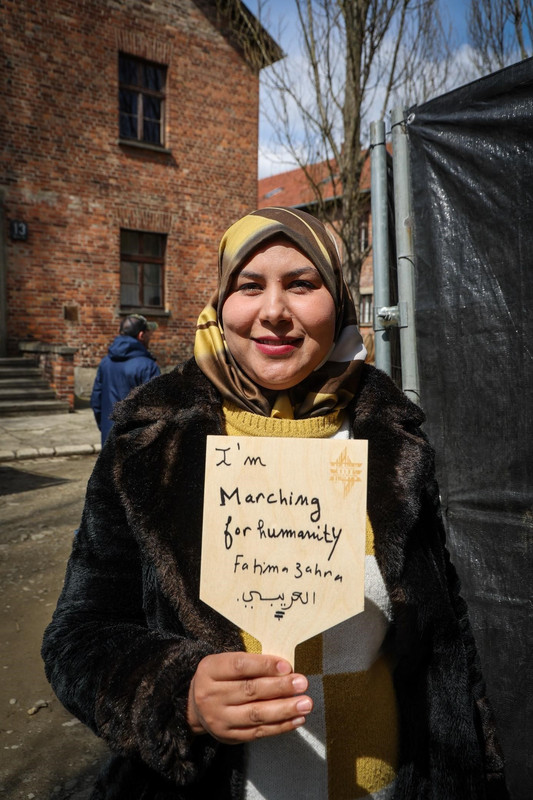
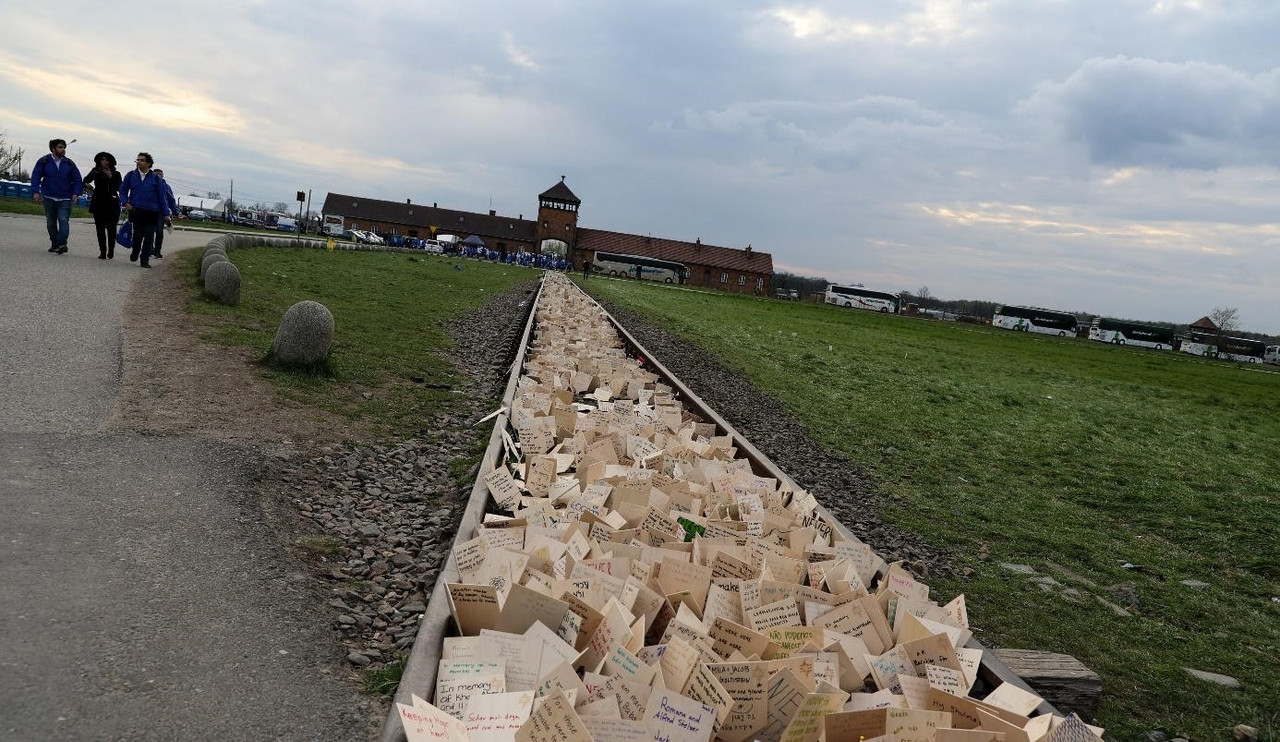
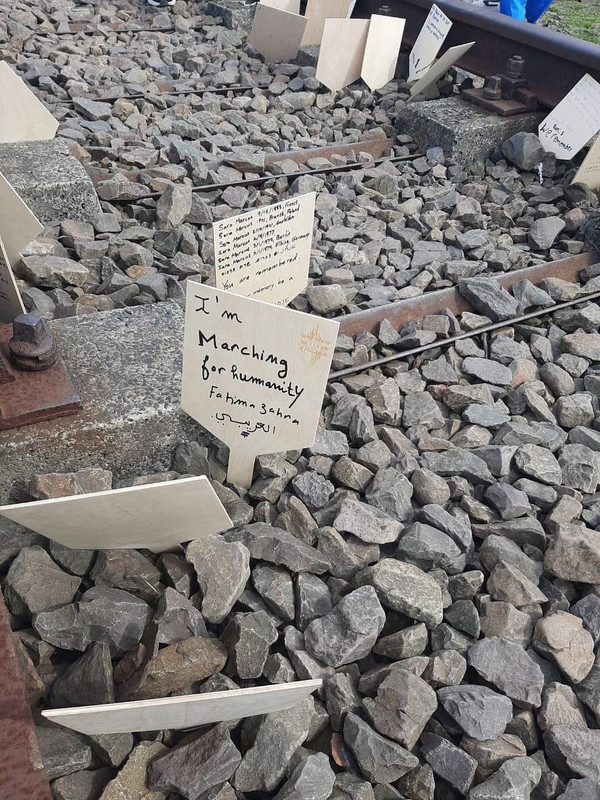
During our time in Poland, we visited a dark place that had such a profound impact on history. However, we felt light of hope and commitment from participants that an event like the Holocaust would never happen again. We truly learned that the best way to heal and prevent these events is by learning from the past to build a better future for people of all backgrounds.
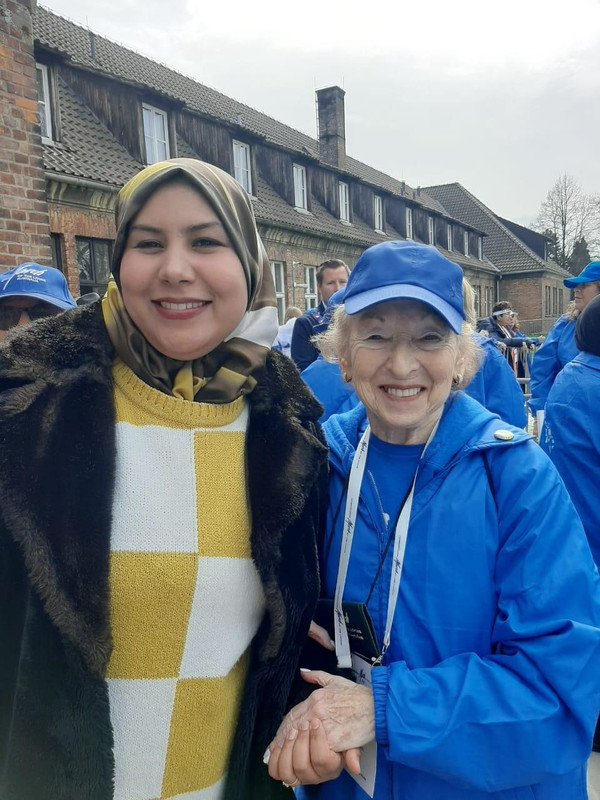
Photo with one of the Survivors